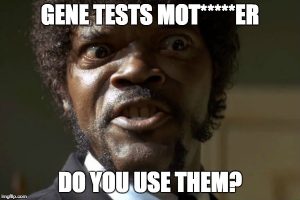
Those at the cold-face of medical practice are often jaded about all the glamour and bright lights we shine on all the wonderful discovery work being carried out and say that much of it doesn’t change what they do everyday. I am not a pessimist but some of them may be right.
According to a study presented recently by Dr van Schaik in the Netherlands shows that there are plenty of genetic tests available which could help rationalise medical therapies (also known as pharmacogenetic tests) but they are not used as often as they should be.
Making them available to the doctors easily, cheaply and adding it to the workflow is the key. Remember this companies who are trying to make these tests…
Other tests indicate which patients are unlikely to respond to treatment at all because their bodies are unable to activate a drug, as is the case with the anti-blood clotting drug clopidogrel which needs activation by CYP2C19, or the cancer drug tamoxifen, which is activated by CYP2D6. In the case of HIV (human immunodeficiency virus) patients, a simple screen for the HLA (human leukocyte antigen)-B*5701 gene variant shows which patients are most likely to suffer severe side effects and so should be prescribed a different drug.But widespread clinical implementation of these tests has been slow. Dr van Schaik says that this is partly because previously genetic tests have been used mostly to diagnose severe diseases. ‘The general notion that you can do DNA analysis without looking for a disease is novel, and apparently is an issue’, says Dr van Schaik.
Source: BioNews – Genetic tests that improve drug effectiveness are going neglected, warns expert
Vishal Gulati (I back scientists) on Twitter: “We like talking about companion diagnostics and predictive medicine but do we use what we know works? Not really http://t.co/MxVVQ9Bp / Twitter”
We like talking about companion diagnostics and predictive medicine but do we use what we know works? Not really http://t.co/MxVVQ9Bp